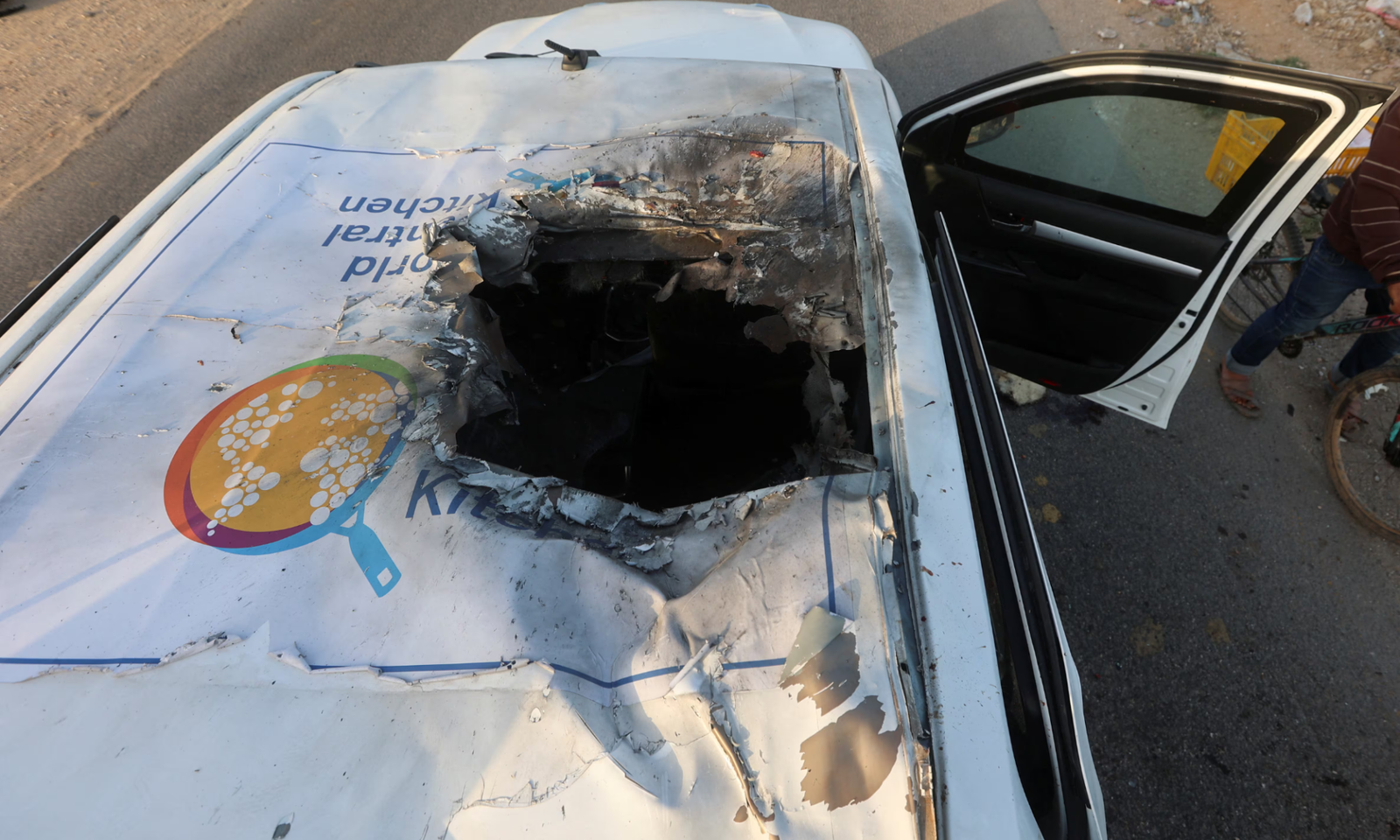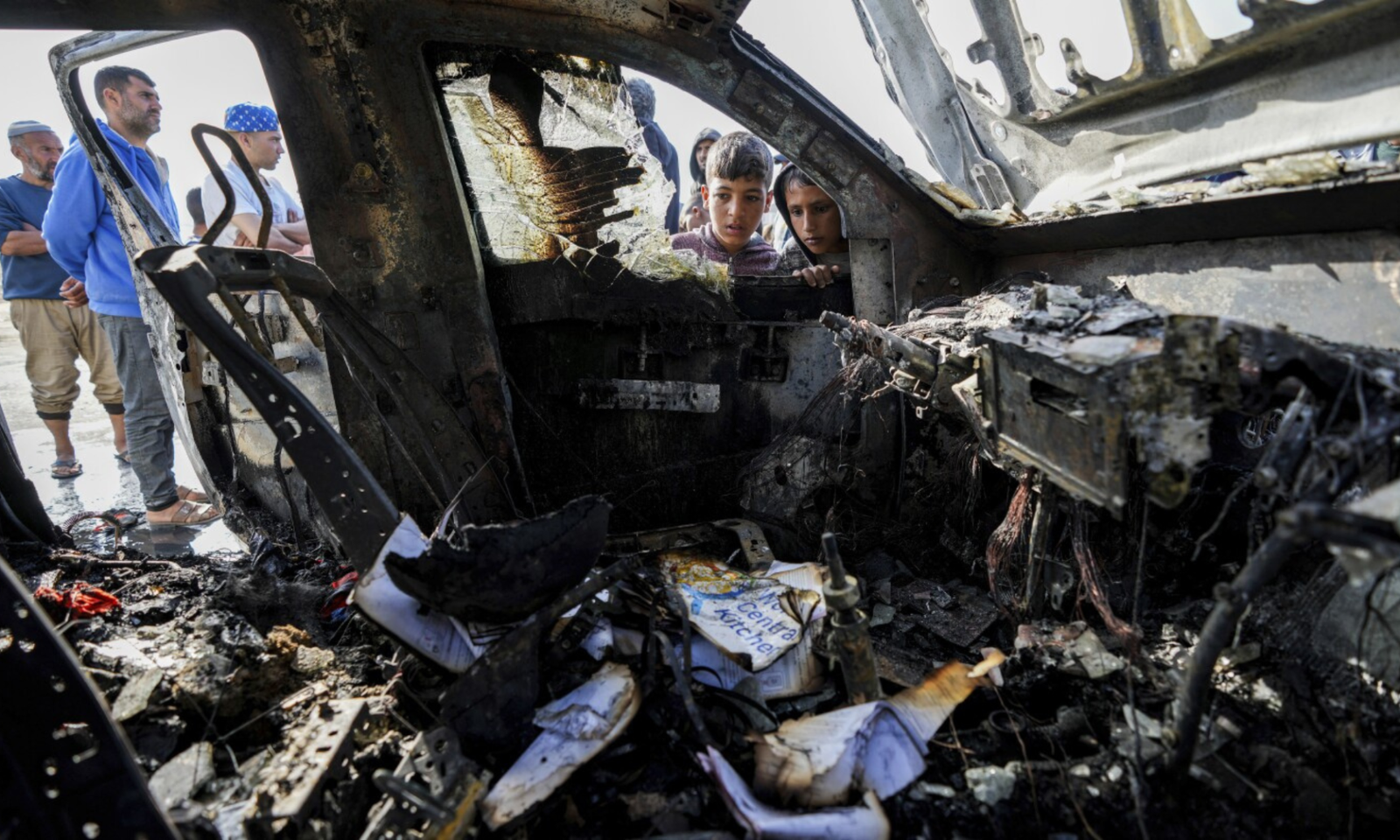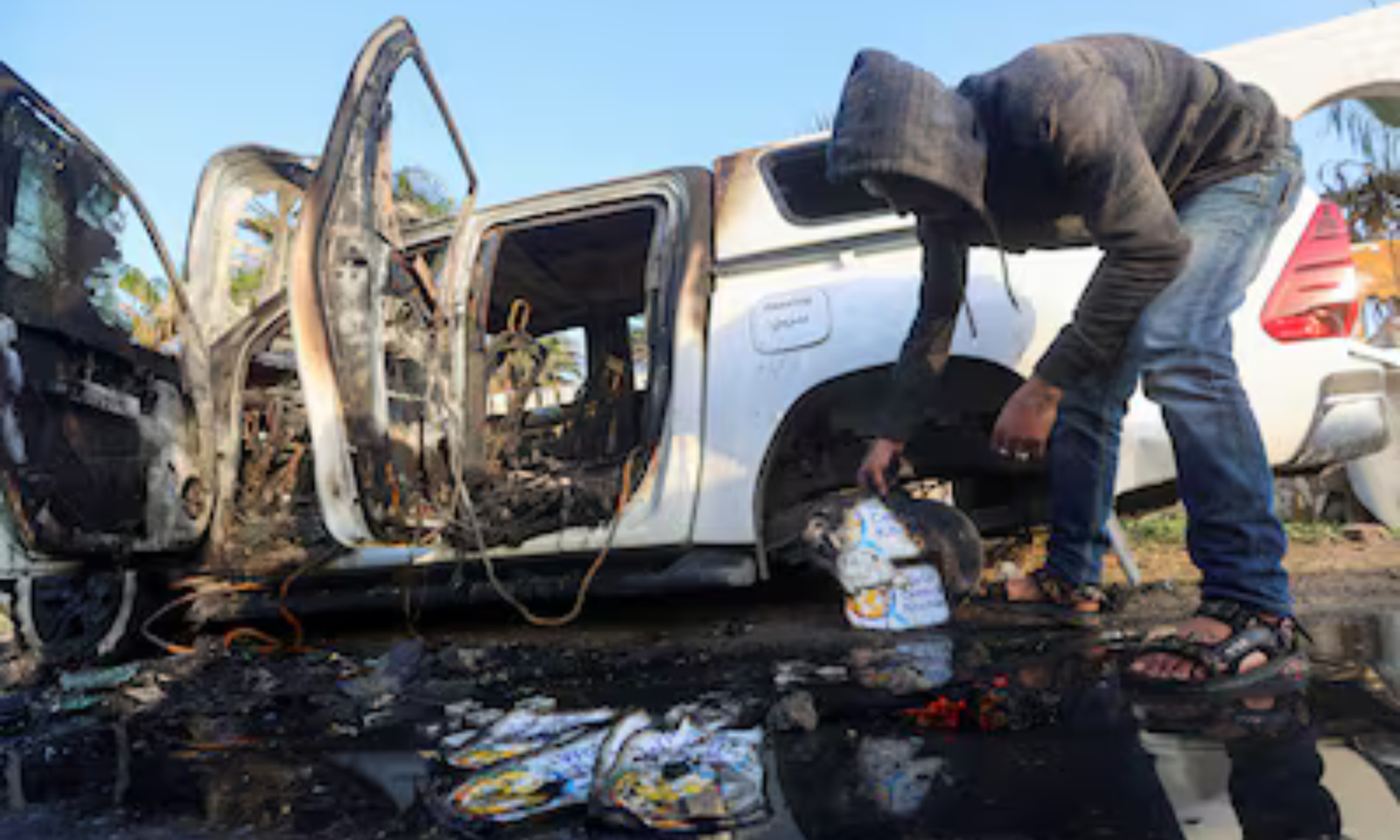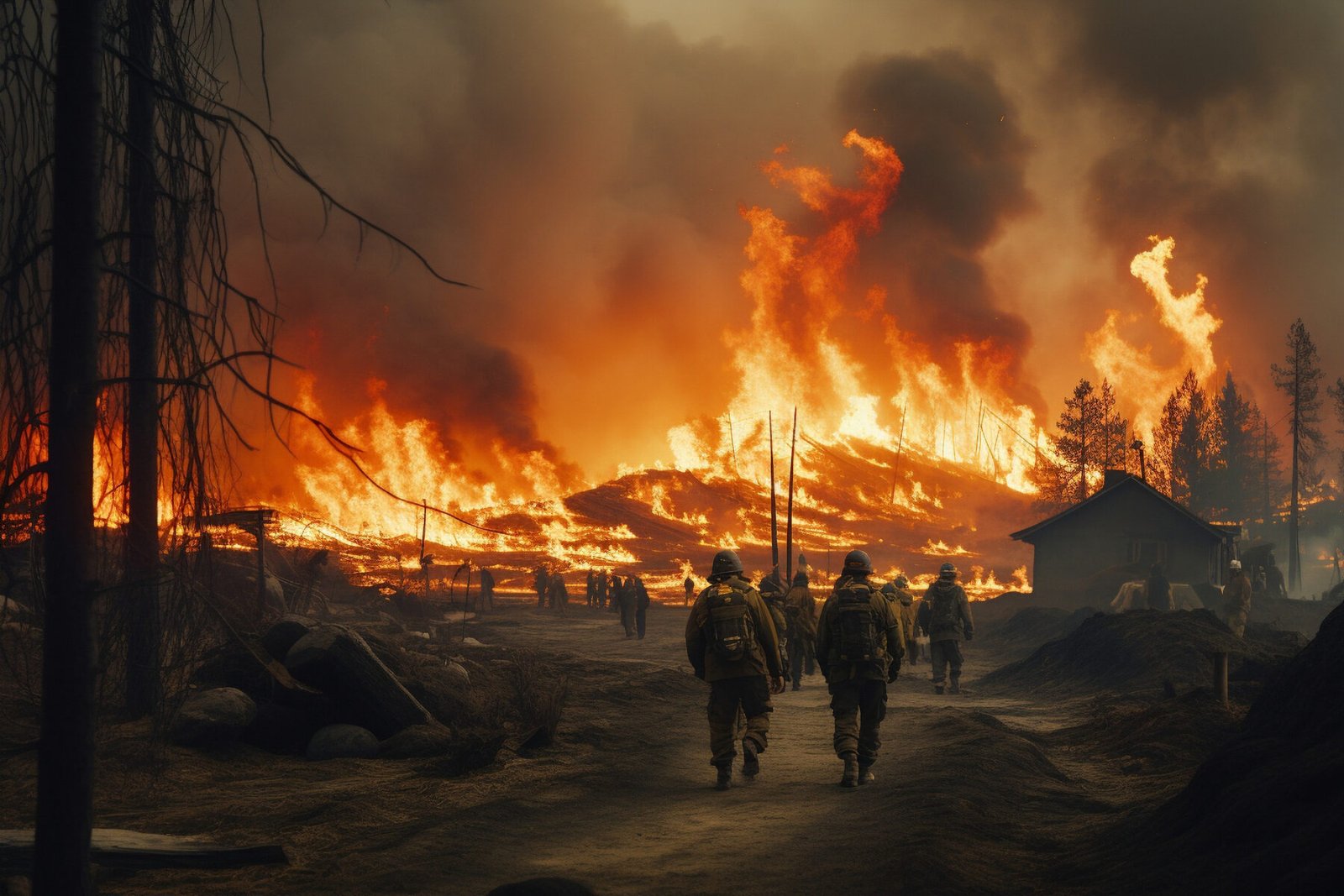A request was made to Anera, another humanitarian organization working in Gaza, by Israel’s Defense Ministry a few weeks prior to the deaths of seven World Central Kitchen relief workers in an Israeli bombing. The ministry requested the coordinates of Anera’s workplaces, warehouses, homeless shelters, and other locations where its staff members reside or work.
Information About Gaza:
According to Sean Carroll, the president and chief executive of Anera, whose company collaborates with chef José Andrés’s World Central Kitchen (WCK) in Gaza, this was the second time the company had been asked for these coordinates. The goal of the approach, which is comparable to what WCK claimed to have also carried out, is to establish deconflicted zones in the midst of the Israel-Gaza conflict, which are safe havens for civilians, aid workers, and others.
Mousa Shawwa was not saved by the process.
Carroll informed The Washington Post that Shawwa, the logistics coordinator for Anera in Gaza, was murdered on March 8 by an Israeli airstrike when he was in a deconflicted shelter. Shawwa was enjoying coffee with his family and a neighbor after returning from an assistance mission where he delivered water, blankets, and other supplies, according to Carroll. Ten days later, Karim, the relief worker’s 6-year-old son, passed away from wounds he sustained during the assault.

According to Carroll, there is no evidence indicating that Shawwa wasn’t targeted, but there is also no evidence indicating that he was. There was a sense among our staff that they were pursuing someone else. We have never, however, been given a reason.
Seven humanitarian workers were killed in a WCK convoy less than a month later by another Israeli bombardment, which Israeli Prime Minister Benjamin Netanyahu described as “unintentional.” Andrés said in an early Wednesday Instagram post that the seven WCK employees who perished represented the best aspects of humanity. They don’t have names or faces. They are neither war’s collateral damage nor general humanitarian workers.
The WCK attack was the final straw for Anera, which stated on Tuesday that it will suspend operations in Gaza following Shawwa’s death and a few previous close calls with its employees. Carroll stated that this was the first time Anera had stopped operations in an occupied Palestinian territory since the organization was established in 1968.
We had persevered through bombing campaigns, earlier wars, and intifadas, and we hadn’t stopped in the last six months of this conflict, Carroll claimed. Thus, it’s not simple. Knowing that we are helping people save lives is difficult, but we must stop.
The withdrawal of Anera and other organizations from the war-torn area brought attention to the risks faced by relief workers trying to feed starving and hungry Palestinians, Ukrainians, Haitians, and others. Following the Monday strike, WCK announced that it was stopping its work there, and at least two other groups followed suit. Food workers in Gaza and other conflict-ridden areas of the world deal with blocked delivery routes, insufficient supplies, downed communications, and potential danger at every turn.

According to the relief Worker Security Database, which keeps tabs on attacks on humanitarian workers worldwide, 203 relief workers in Gaza have died since October 7. In contrast, a report from Humanitarian Outcomes and the Global Interagency Security Forum states that over 260 people died worldwide in 2023. According to the research, the figure for 2023 is more than twice as high as the average annual sum for the preceding three years.
The number of people killed in Gaza who were supplying food remains unknown, according to Abby Stoddard, a partner at Humanitarian Outcomes, which is in charge of keeping the list up to date. She points out that many of them perished with their families even though they weren’t on duty.
The attack on the charity workers only serves to highlight how crucial their mission is for those still working to provide wheat and other basics to the people of Gaza.
World Food Program (WFP) senior spokesman Steve Taravella stated that the organization will stay in the area, where it was operating even before to the October 7 bombings by Hamas, which prompted Israel to declare war. Prior to the conflict, the organization had partnerships with bakeries and food stores, but Taravella claimed that due to supply shortages and power outages, these businesses have largely closed. The program’s current goal is to provide as many products as possible—flour, date bars, and canned chickpeas—directly to consumers.
People are actually passing away from starvation. Thus, it’s imperative that we remain and feed them, he stated. However, the circumstances are just appalling.
Only 47 trucks could be entered north Gaza by the WFP in March, despite the organization’s estimate that 300 trucks are required each day.

Because we all understand the difficulties involved in undertaking this kind of work, we all feel a connection to one another, Taravella added. Therefore, we have a strong sense that this could be us when we witness anything like this, whether it’s a fellow United Nations employee or another organization like World Central Kitchen. Additionally, (b) it’s a needless death. And to witness that occur to someone who was present and acting to lessen the suffering of others…
Even so, Taravella claimed he feels “uncomfortable” discussing the dangers that employees encounter. He stated that it would be regrettable if the emphasis was on “woe is us.” People who have gone for months without eating enough to keep their bodies functioning—many of whom are in actual starvation—are the ones who are suffering the most right now.
President Biden said, “This conflict has been one of the worst in recent memory in terms of the number of aid workers that have been killed.” He was outraged by the murders. This is a big part of the problem with humanitarian aid distribution in Gaza: Israel hasn’t done enough to safeguard relief workers attempting to provide much-needed assistance to civilians.
When providing meals to those in need, relief workers will tell you that there is a sliding scale of danger, particularly for an organization like WCK that handles a variety of situations. During the U.S. government shutdown in late 2018 and early 2019, for example, WCK faced almost little risk when it came to providing food for federal employees on furlough.

However, the dangers increase as organizations enter areas vulnerable to natural disasters. In rural North Carolina, far from any kind of civilization, an all-terrain vehicle carrying hot food slid off a flooded road and began to take in water in the days after Hurricane Florence in 2018. The terrifying incident was documented for the documentary “We Feed People,” which was directed by Ron Howard and features Andrés and the charity he established.
But things are very different in war zones and unstable nations. According to a U.N. Human Rights Office report from this year, WCK has established a network of kitchens to feed displaced people in Haiti while gang violence and corruption have torn the nation apart, putting governmental institutions “close to collapse.”
However, the first ongoing battle where WCK established meal delivery operations was Ukraine. Two months after Russia invaded the nation, in April 2022, a missile struck a relief kitchen in Kharkiv that was run with assistance from WCK. Four kitchen employees, some with severe burns, were admitted to the hospital. Since the establishment of WCK in 2010, this was the first time that one of their relief kitchens had been targeted.
However, compared to Ukraine, Gaza poses significantly greater hazards. It is unsafe to be in Gaza. You’re in a closed space. Israel is bombarding. There are militants from Hamas engaged in combat. The general public is caught in the midst. You’re confined. There is nowhere to escape. Everything is ruined. According to a former employee of WCK who spoke under anonymity because they were not authorized to speak on behalf of the company, bombs are dropping everywhere.
This is not the terrible men, the former employee said. Ukraine is decent guys. Let’s continue to be the nice guys. Until some strange accident occurs or something, I’m not concerned about Ukrainians shooting at us.

However, GEM also conceals from the Russian Federation the locations of the organization’s food distribution plans. “I think there’s more risk in letting them know what we’re doing than not letting them know,” the creator said, explaining why he had decided never to do it.
GEM, which has been operating in Haiti for years, has applied the lessons it learnt there to Gaza. In Haiti, the poorest country in Latin America and the Caribbean, criminals try to steal supplies meant for disadvantaged inhabitants. GEM keeps supplies in warehouses in southern Gaza. From there, the organization packs covered, unmarked trucks with food, water, blankets, mattresses, and other items for distribution to places further north. GEM will even hire cars from nearby companies to cover up its humanitarian endeavors.
Additionally, GEM trucks never go in convoys. According to Capponi, the ruse isn’t intended to thwart Israeli Defense Forces attacks. The issue was primarily one of thievery and looting.
The world of disaster relief and humanitarian assistance has grown more deadly and professional in recent decades, according to Stoddard, a partner at Humanitarian Outcome.
According to her, companies providing aid in crisis areas have improved their worker safety protocols by developing more advanced training. There was no training available twenty years ago. She stated that the majority of firms did not even have security manuals. I believe that in the past, less seasoned individuals would often engage in more impromptu (or “cowboy”) activities. Now, everyone is much more formal and more buttoned down.

According to her, assistance workers may receive basic security and situational awareness training, depending on the circumstances and available funds. Most have policies that employees are expected to abide by, such as following curfews and following rules for how to travel. She indicated there might be a law requiring them to go in convoys through risky areas. Some provide a more involved scenario-based coaching program called HEAT, or hostile environment awareness training, at a high cost.
Still, she claimed that the death toll is rising. The long-term pattern of rising aid worker mortality is still evident despite all the professionalization and capacity building.
One explanation is the increasing complexity of the conflicts themselves. She pointed out that after the 2015 peace deal, there was an increase in the death toll of relief workers in Sudan. There are many criminal gangs and quasi-militias nowadays instead of confined, warring organizations, and all of them have access to guns, according to Stoddard. Because they have assets, aid workers do make tempting targets for violence.
Unlike some of its competitors, GEM intends to carry on providing food and other relief to Palestinians in spite of the dangers in Gaza. Naturally, Capponi stated, safety is of utmost importance to our teams. However, individuals will perish there if they don’t receive assistance. That kind of circumstance exists.

In addition, WCK stated that it will soon be making decisions regarding the future of its work when it declared that it was “pausing” its operations in Gaza. In response to a question about when WCK would resume operations there, Andrés wrote on WhatsApp, “Everything has its time.”
Carroll stated that Anera is unsure of when it would resume operations in Gaza, despite the fact that the organization’s absence will result in 150,000 fewer meals being served there each day. All forty-three of the group’s partner groups are inquiring as to how the shutdown will affect their relief operations. Carroll doesn’t have many responses.
I’m not sure how we can begin to feel safe until Israeli society and the Israeli government acknowledge that, in reality, the current course does not increase Israel’s security or that of its citizens. Carroll said it makes people feel less secure. I doubt they can offer a solution that will give Anera a sense of security unless it is acknowledged that, you know, perhaps killing humanitarian workers is not the best approach to advance our security.

